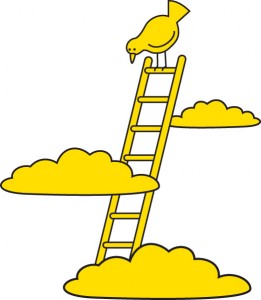 At the University of California, Santa Cruz in 1972, Richard Bandler, a mathematics student, and John Grinder, a linguistics professor, informally studied the work of Fritz Perls, the founder of Gestalt therapy, and family therapist Virginia Satir. The two therapists claimed to follow very different methods, yet actually seemed to do exactly the same thing within the client sessions themselves – challenging the limiting beliefs of their clients with very similar questions. Bandler and Grinder analyzed the language patterns of these questions, and produced a model enabling non-therapists to use these questions.
At the University of California, Santa Cruz in 1972, Richard Bandler, a mathematics student, and John Grinder, a linguistics professor, informally studied the work of Fritz Perls, the founder of Gestalt therapy, and family therapist Virginia Satir. The two therapists claimed to follow very different methods, yet actually seemed to do exactly the same thing within the client sessions themselves – challenging the limiting beliefs of their clients with very similar questions. Bandler and Grinder analyzed the language patterns of these questions, and produced a model enabling non-therapists to use these questions.
NLP has blossomed since then, with a range of people adding insights and techniques, both for personal development and the business world. This blossoming has been without the guidance of a unifying professional body – the founders could not agree on what form such a body would take. NLP has grown organically into a global psychological discipline without any clear boundaries. The benefit of this approach has been an enormous flow of creativity: the disadvantage is a lack of a commonly agreed approach to a teaching syllabus, standard practice and accreditation.
NLP has not been without critics. It has been associated with exploitative stage hypnosis shows and dodgy selling techniques. However the vast majority of NLP always has been, and continues to be, used in a caring, positive way by individuals keen to improve their own lives and the lives of others around them. Our training is firmly in this tradition.
NLP itself has become polarised by two main approaches: one is a high speed and hard edged way of developing skills with a focus on material success. The other is an exercise in personal and spiritual development with an emphasis on an alternative lifestyle approach. At NLP School we believe that you can gain the full richness and benefits of both of these approaches to NLP without the need to be a certain “type” of person; you can increase both your success and sense of inner-peace – one does not preclude the other.








